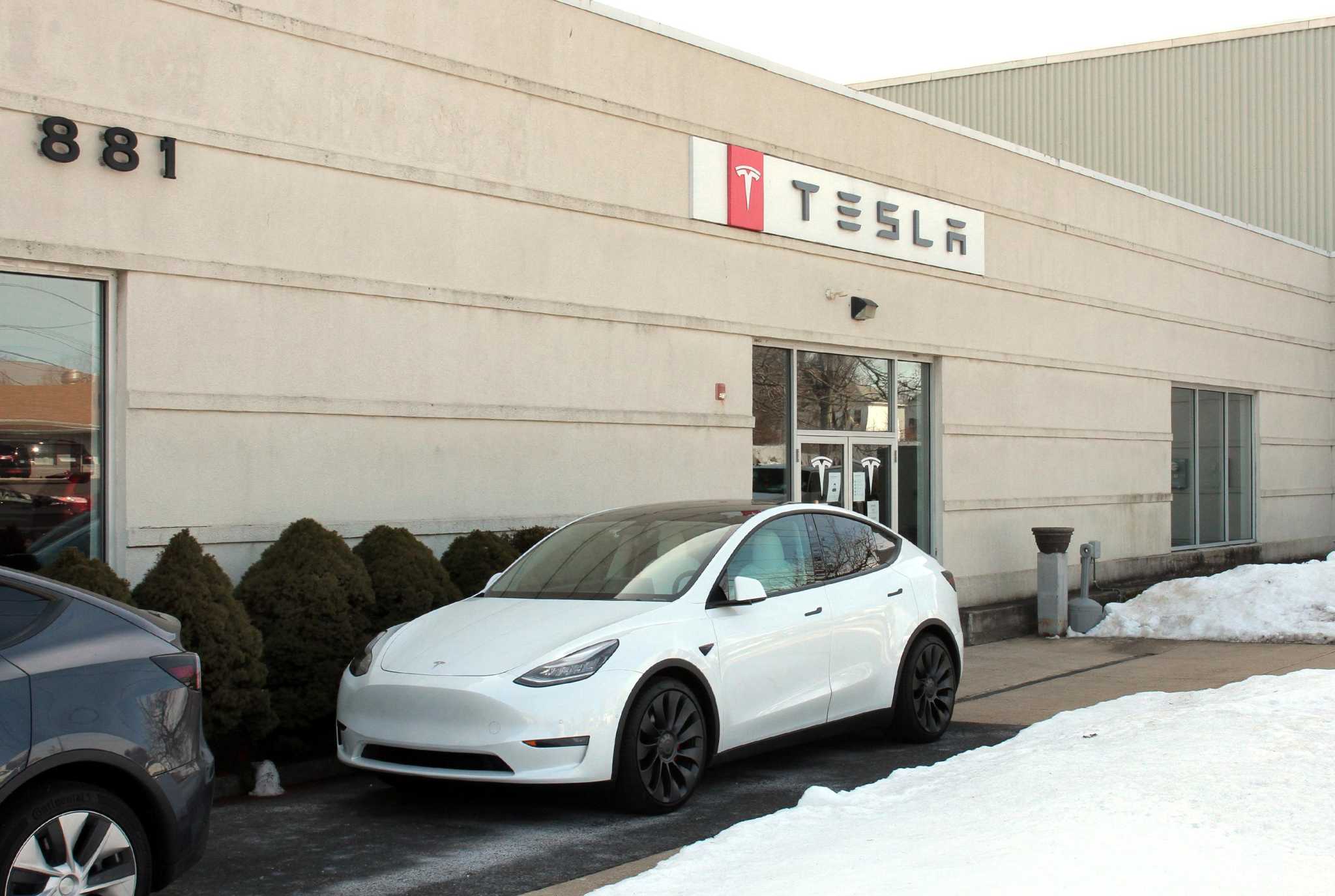Car Dealerships Increase Resistance To Electric Vehicle Regulations

Table of Contents
Financial Concerns and Profit Margins
One of the primary reasons for car dealerships' resistance to EV regulations stems from financial anxieties and concerns about profit margins. The shift to electric vehicles presents significant financial challenges for dealerships accustomed to the established business model of internal combustion engine (ICE) vehicles.
- Lower Profit Margins: Currently, the profit margins on EVs are generally lower than those on traditional gasoline-powered vehicles. This is due to several factors, including higher initial manufacturing costs and a more streamlined sales process for EVs that often cuts out some of the traditional profit centers.
- High Upfront Investment: Transitioning to an EV-centric model demands substantial upfront investment. Dealerships need to invest in new infrastructure, such as charging stations, specialized EV maintenance tools, and employee retraining programs. This significant capital expenditure can be a major deterrent, particularly for smaller dealerships.
- Lack of Sufficient Government Incentives: While some government incentives exist to encourage EV adoption, many dealerships feel they are insufficient to offset the substantial costs associated with the transition. More comprehensive and targeted support is needed to ease the financial burden on dealerships.
- Uncertainty Regarding Future EV Demand: The long-term market demand for electric vehicles remains somewhat uncertain, leading to hesitancy among some dealers to commit significant resources to a technology whose market share is still evolving.
- Staff Retraining: Dealerships also face the significant cost of retraining their staff on EV technology, maintenance, and repair. The technical expertise required for EVs differs significantly from that needed for ICE vehicles.
Concerns about Inventory and Sales Models
Beyond financial concerns, dealerships are grappling with challenges related to inventory management and the adaptation of their sales models to the specific needs of the EV market.
- EV Inventory Management: Managing EV inventory presents unique challenges. Lead times for EV orders are often longer than those for ICE vehicles, making it difficult for dealerships to accurately predict and meet customer demand. Furthermore, regional variations in EV demand can further complicate inventory planning.
- Changing Sales Strategies: Selling EVs requires a different sales approach than selling gasoline cars. Customers need to be educated about charging infrastructure, range anxiety, and the overall benefits of EVs. Dealerships need to adapt their sales strategies and training to address these specific consumer needs.
- Used EV Market Development: The development of a robust used EV market is crucial. Dealerships are concerned about the potential impact of a slow-growing used EV market on trade-in values and the overall profitability of their EV operations.
- Charging Infrastructure: The lack of widely available and reliable charging infrastructure remains a major barrier to consumer adoption, directly impacting dealerships' ability to sell EVs confidently.
Resistance to Government Mandates and Policies
The pushback against EV regulations also manifests as direct resistance to government mandates and policies aimed at accelerating the transition to electric vehicles.
- Opposition to Stringent Regulations: Many dealerships oppose stringent government regulations and mandates that force a rapid shift to EVs, arguing that such policies are disruptive and fail to adequately account for the challenges faced by the industry.
- Job Security Concerns: Concerns about potential job losses within the ICE vehicle sector contribute to resistance among dealerships. A rapid transition to EVs could lead to job displacement for mechanics and technicians specializing in ICE vehicles.
- Lobbying Efforts: Dealerships and automotive associations are actively engaged in lobbying efforts to influence EV regulations, seeking changes that would alleviate the financial and operational burdens imposed by these policies.
- Policy Uncertainty: Uncertainty about future government policies and their long-term impact on the automotive industry adds to the overall resistance and creates hesitancy among dealerships to fully commit to the EV transition.
The Role of Consumer Perception and Demand
The success of EV adoption hinges heavily on consumer perception and demand. Addressing consumer concerns is crucial to overcoming resistance to EV regulations.
- Addressing Consumer Concerns: Dealerships need to actively address consumer concerns about range anxiety, charging times, and the often higher initial purchase price of EVs. Transparency and education are key.
- Improving Public Awareness: Increased public awareness of the benefits of EVs, such as reduced emissions and lower running costs, is essential to stimulate demand. Overcoming misconceptions about EV technology is equally important.
- Educating Customers: Dealerships must play a role in educating customers about EV technology, maintenance, and the availability of charging infrastructure. This education builds confidence and drives sales.
Conclusion
Car dealerships face considerable challenges in adapting to stricter electric vehicle regulations. These challenges encompass significant financial hurdles, complex inventory management issues, and substantial resistance to government mandates. Understanding and effectively addressing these concerns are paramount to achieving a smooth transition towards a sustainable automotive future. The resistance to electric vehicle regulations highlights the critical need for collaborative solutions involving governments, manufacturers, and dealerships. Open communication, transparent policies, and targeted support programs are essential to facilitate the successful adoption of electric vehicles and to overcome the resistance to EV regulations. The future of transportation depends on effective strategies to bridge this gap and accelerate the transition to a cleaner, more sustainable automotive industry.

Featured Posts
-
 Hl Ysttye Barys San Jyrman Thqyq Hlm Dwry Abtal Awrwba
May 09, 2025
Hl Ysttye Barys San Jyrman Thqyq Hlm Dwry Abtal Awrwba
May 09, 2025 -
 Edmonton Oilers Projected To Win Against Los Angeles Kings A Look At The Betting Odds
May 09, 2025
Edmonton Oilers Projected To Win Against Los Angeles Kings A Look At The Betting Odds
May 09, 2025 -
 Barys San Jyrman Tmwh Awrwby Kbyr W Thdyat Muqblt
May 09, 2025
Barys San Jyrman Tmwh Awrwby Kbyr W Thdyat Muqblt
May 09, 2025 -
 Opposition Protests Lead To X Blocking Turkish Mayors Account
May 09, 2025
Opposition Protests Lead To X Blocking Turkish Mayors Account
May 09, 2025 -
 Tragedi Putra Heights 10 Adn Pas Selangor Beri Bantuan Kepada Mangsa
May 09, 2025
Tragedi Putra Heights 10 Adn Pas Selangor Beri Bantuan Kepada Mangsa
May 09, 2025
